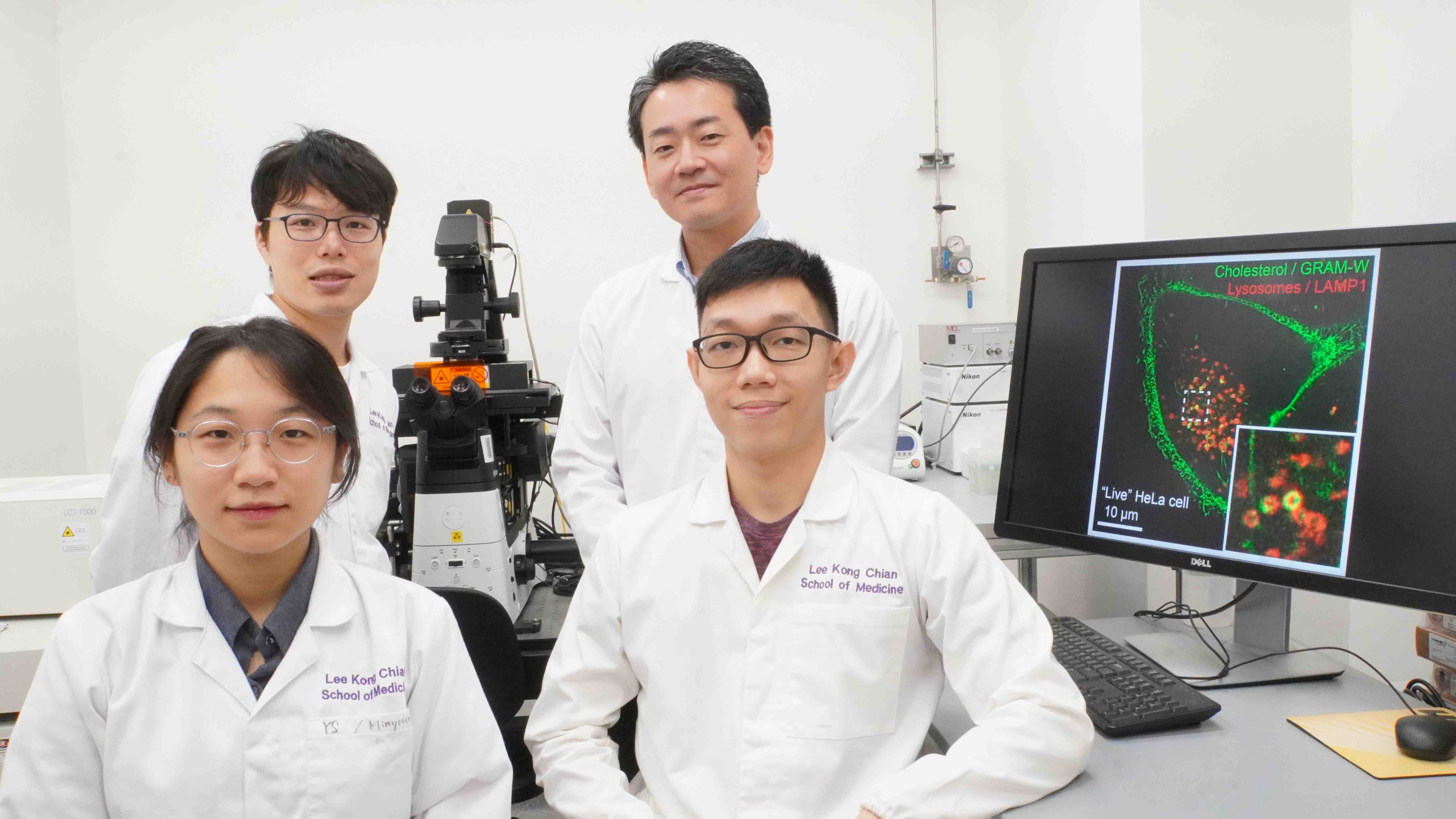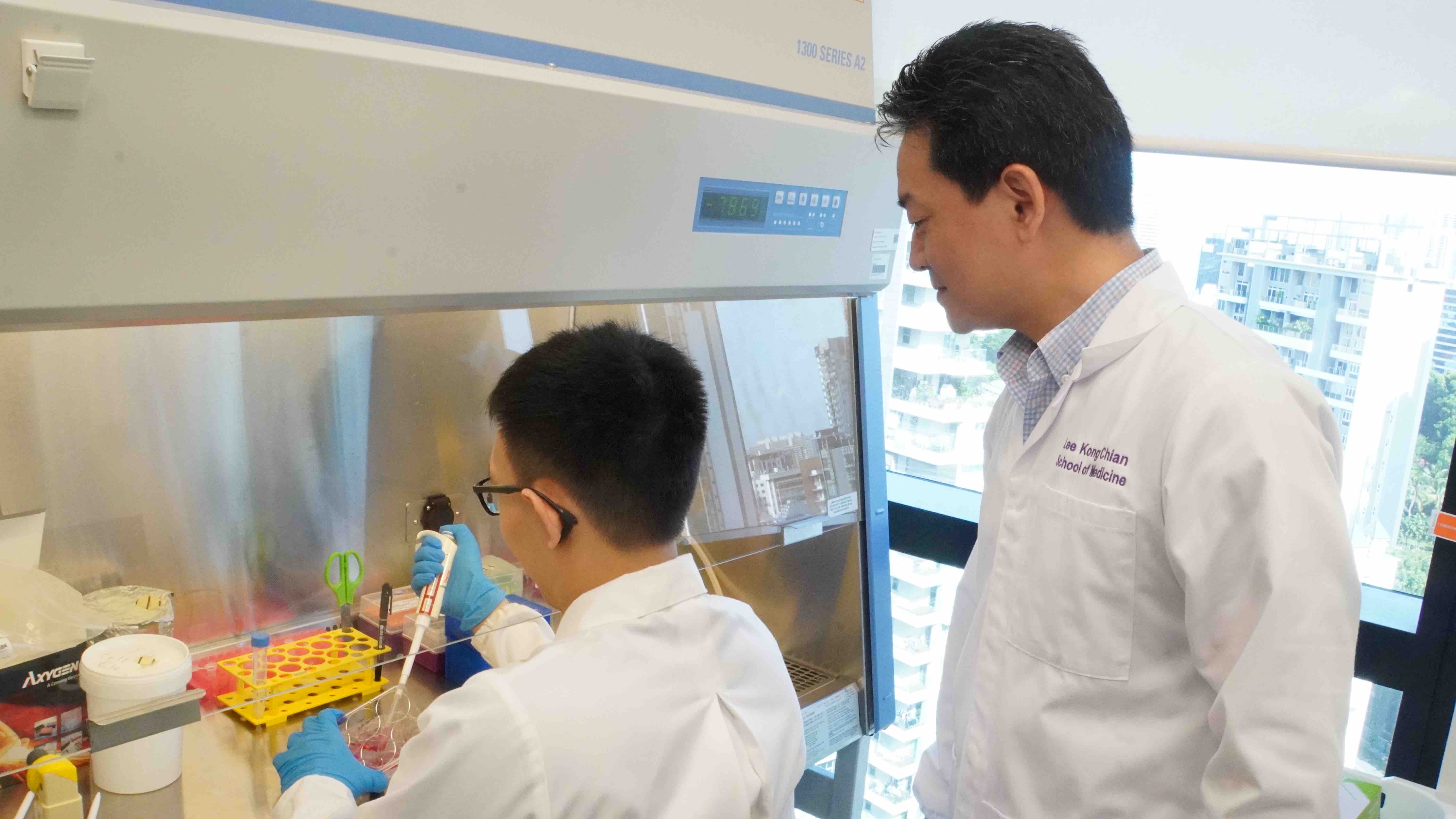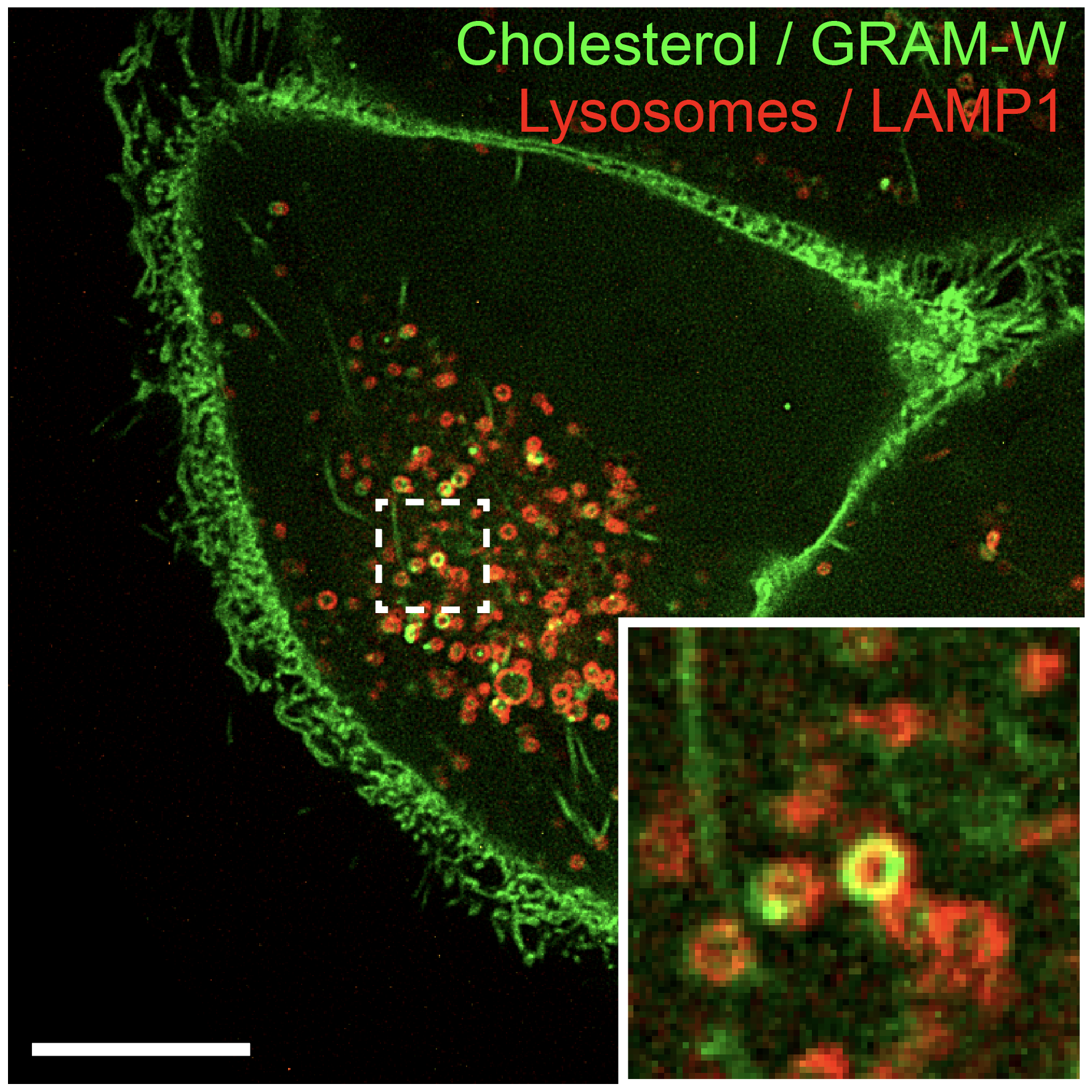Research: LKCMedicine Researchers Open Doors to New Approaches against Neurodegenerative and Cardiovascular Diseases with Novel Cholesterol Biosensor
 | By Retna Devi |
A team of LKCMedicine researchers led by Associate Professor of Cell Biology and Neuroscience Yasunori Saheki has successfully developed GRAM-W, a novel cholesterol biosensor with the ability to track cholesterol in live cells in real time at an unprecedented resolution. This is a breakthrough as existing tools are not able to provide clear and real-time insights into cholesterol distribution.

(From top right) Associate Professor Yasunori Saheki, Research Fellow Dr Tomoki Naito, PhD student Minyoung Na, and PhD student Dylan Hong Zheng Koh
The biosensor, engineered from the cholesterol sensing element of a lipid transfer protein called GRAMD1b, has been used to uncover cholesterol distribution patterns in different cell types and the way they are regulated.
“The three-year study is a breakthrough in biomedical research because, up till now, there have been limited number of effective tools that clearly display and track the distribution of cholesterol in live cells in real time,” said Assoc Prof Saheki, a cell biology expert.
“Previous tools use molecules such as filipin, Perfringolysin O and Anthrolysin O, which either require ultraviolet light or inhibit the movement of cholesterol in the cells and damage cells, making them unsuitable for detecting cholesterol in live cells,” added Dylan Hong Zheng Koh, LKCMedicine PhD student and lead author of the study.

Associate Professor Yasunori Saheki and PhD student Dylan Hong Zheng Koh
The new tool, developed by the team of nine researchers, introduces exciting possibilities of studying how the levels of cholesterol are maintained in the plasma membrane, where cholesterol is most enriched in the cell – an area that was previously difficult to study. The team integrated GRAM-W with cutting-edge fluorescent proteins to enable detailed examination. The collaborative effort involved three LKCMedicine laboratories led by Assoc Prof Saheki, former Vice Dean (Research) Professor Lim Kah Leong, and Nanyang Assistant Professor Franklin Zhong.
These findings were published in Nature Communications in October 2023.

Live human cells expressing GRAM-W (green) to visualise cholesterol. Scale bar, 10 µm.
Given the crucial role of regulated cholesterol transport in preventing neurodegenerative diseases like Alzheimer's Disease and cardiovascular diseases, GRAM-W promises an avenue for understanding both normal and abnormal cholesterol distribution. This insight could lead to the identification of key proteins responsible for maintaining healthy cholesterol distribution in neurons, and innovative treatment and diagnostic strategies for neurodegenerative and cardiovascular diseases.
As the GRAM-W biosensor presents a transformative tool in biomedical research, A/P Saheki remarked, “This new biosensor offers a new perspective on cholesterol distribution in live cells, paving the way for new treatment and drugs to combat diseases that are linked to cholesterol dysregulation.”
